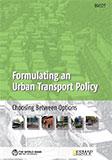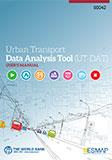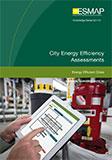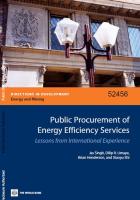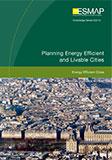Publications
by Jas Singh, Dilip R. Limaye, Brian Henderson, and Xiayu Shi
ISBN 978-0-8213-8062-8
Public Procurement of Energy Efficiency Services
To help cities realize large untapped energy savings in their key operating sectors, EECI issued a book and a follow-on, “How-to-get-started” note on public procurement of energy efficiency services.
Due to the current universal concerns over global energy security, competitiveness, and environmental protection, energy efficiency is as important, if not more important, than ever before. However, realizing large-scale savings has proven a significant challenge due to many barriers. Public Procurement of Energy Efficiency Services looks at a largely untapped energy efficiency market, the public sector. While the efficiency potential in this sector is substantial, the implementation of those energy savings programs has been complicated by a number of factors, such as insufficient incentives to lower energy costs, rigid budgeting and procurement procedures, and limited access to financing.
To assist cities in overcoming these challenges, EECI issued a book on public procurement of energy efficiency services, which looks at energy savings performance contracts (ESPCs) as a means of overcoming some of these barriers in public facilities. Because public facilities can outsource the full project cycle to a commercial service provider, ESPCs can allow public agencies to solicit various technical solutions, mobilize commercial financing, and assign performance risk to third parties, allowing the agency to pay from a project's actual energy savings. The recommendations found in this book stem from case studies which identified approaches, models, and specific solutions to ESPC procurement, including budgeting, energy audits, and bid evaluation. Such an approach also offers enormous potential to bundle, finance, and implement energy efficiency projects on a larger scale in the public sector, which can yield further economies of scale. Click here to access the book launch webstory and here to read on the comments made by the Director of Energy, Transport and Water Department and the Author.
Building on the book, EECI produced the Public Procurement of Energy Efficiency Services Getting Started Guidance Note, which focuses on using energy savings performance contracts under World Bank procurement guidelines. The note offers ideas and options under World Bank processes to formulate operational approaches and strategies to deliver large-scale energy savings to public agencies, at both the national and local levels. Learn more about the launching of the book here.
Return to EECI Home Page
Related Links
- Public Procurement of Energy Efficient Products | Lessons from Around the World
- Public Procurement of Energy Efficiency Services Getting Started Guidance Note | Related webstory
- Analytical Tools for Municipal Energy Efficiency Planning
- Book Launch | Public Procurement of Energy Efficiency Services: Lessons from International Experience (web story)
- New Publication Outlines Energy Saving Solutions in the Public Sector (web story)
- Energy Efficient Cities Initiative Brochure
